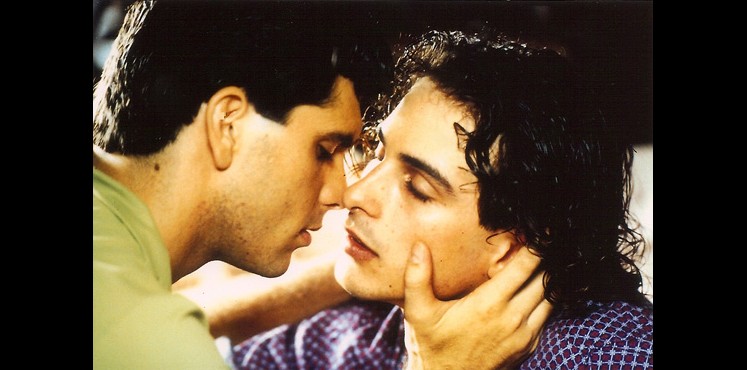
Don't Tell Anyone
Director: Francisco J. Lombardi Writers: Giovanna Pollarolo, based on a novel by Jaime Bayly Producers: Gustavo Sánchez, José M. Garasino Cinematographer: Carles Gusi Cast: Santiago Magill, Christian Meier, Lucía Jiménez, Giovanni Ciccia
Film Rating: You must be 18 years or older to attend this screening.
Based on the semi-autobiographical novel of Peruvian journalist and talk-show host, Jaime Bayly, the film adaptation of Don’t Tell Anyone is a classic '90s rollicking drama of forbidden love, reckless living and the search for identity. Featuring a great soundtrack by Fito Paez and Los Zopilotes.
Joaquin has always known that he is attracted to men, though he is unable to accept it. Pressured by his family and society, he tries to embark on a relationship with Alejandra, but instead he falls for Gonzalo, with whom he starts an intense love affair. Joaquin wants Gonzalo to leave his girlfriend, but Gonzalo wants to get married and continue seeing Joaquin in secret. Disappointed by Gonzalo’s hypocritical behaviour, Joaquin attempts to flee in search of a more authentic way of life, far from the judgmental attitudes of upper class Peruvian society. But can this new life live up to his expectations?
After its premiere in 1998, Don’t Tell Anyone was heavily censored in Peru, even as it received wide international attention and acclaim. Don’t Tell Anyone is considered one of the seminal films to understand the double moral standard that exists in Peru and in many Latin American countries concerning homosexuality.
Don’t Tell Anyone is directed by Francisco J. Lombardi, one of the most renowned Latin American film directors. His films Pantaleón y las visitadoras (Captain Pantoja and the Special Services) and La ciudad y los perros (The Time of the Hero), based on the novels by Nobel Prize-winning author Mario Vargas Llosa, are considered some of the most important films in the history of Peruvian cinema.
Joaquín siempre ha sabido que le gustan los hombres, aunque no quiera aceptarlo. Presionado por el entorno social y familiar intenta relacionarse con Alejandra, pero se enamora de Gonzalo, con quien inicia una intensa aventura. El problema es que él quiere que su amigo deje a su novia, pero Gonzalo quiere casarse y continuar los encuentros a ocultas. Decepcionado por la conducta hipócrita de Gonzalo, decide irse a buscar una vida más auténtica lejos de los prejuicios de la sociedad limeña. ¿Pero en su nuevo destino puede encontrar lo que busca?
En el momento de su estreno, No se lo digas a nadie, sufrió de la censura en Perú, aún así, la cinta logró una proyección internacional muy importante, y es hoy una de las cintas primordiales para comprender la doble moral de la sociedad peruana y latinoamericana en temas como la homosexualidad.
No se lo digas a nadie es dirigida por Francisco J. Lombardi, uno de los cineastas latinoamericanos más reconocidos. Sus películas Pantaleón y las visitadoras y La ciudad y los perros, basadas en las novelas del escritor Mario Vargas Llosa, son consideradas como algunas de las obras más importantes en la historia del cine peruano.

